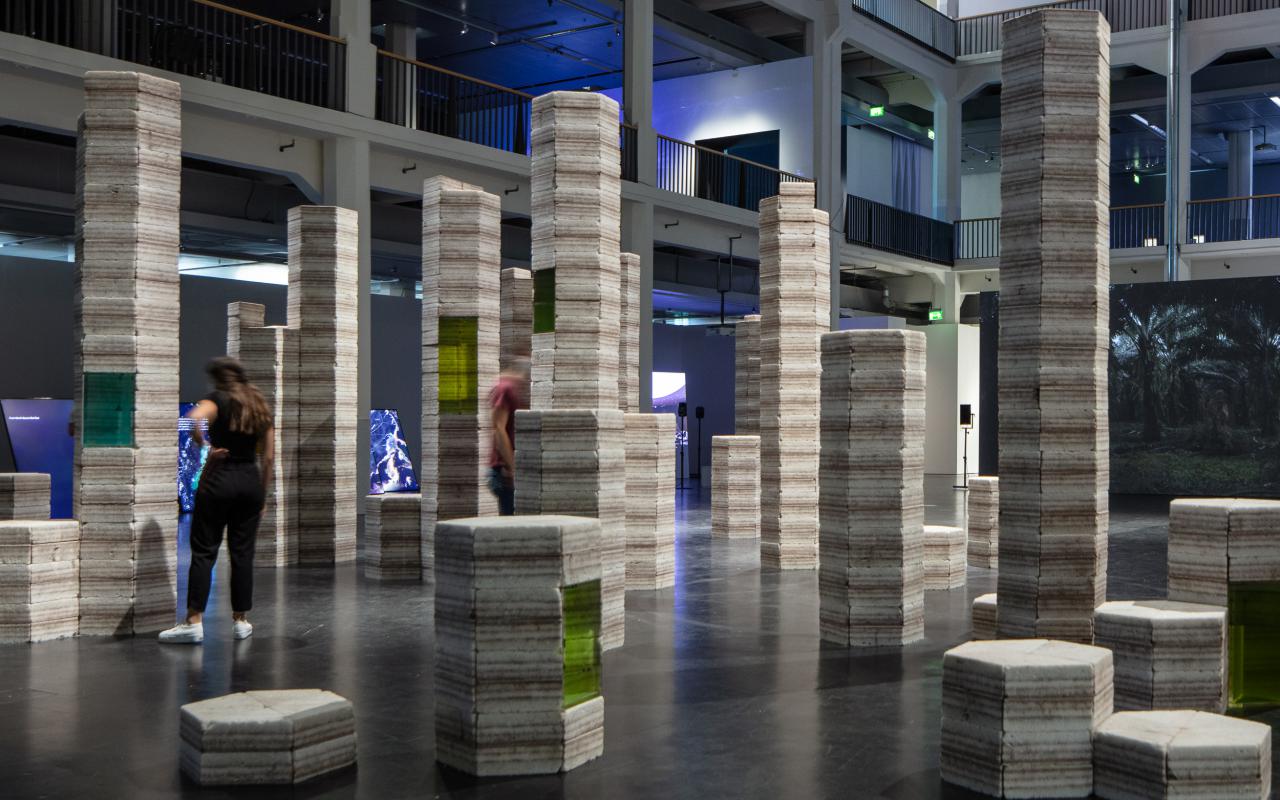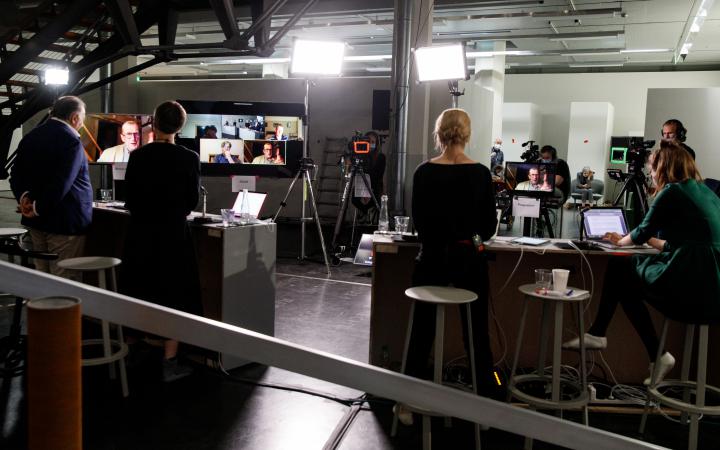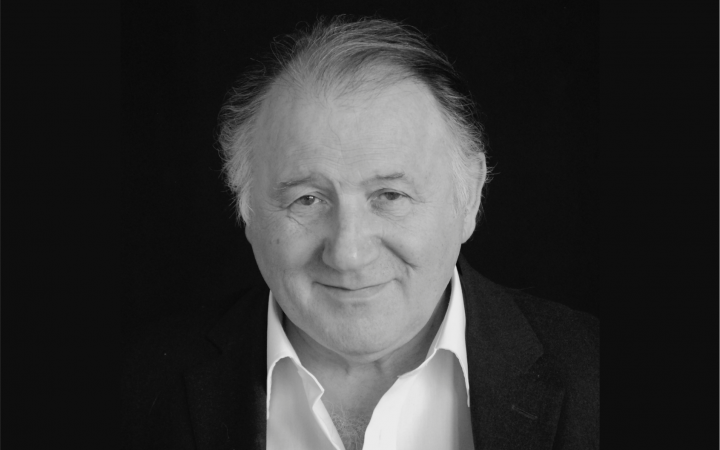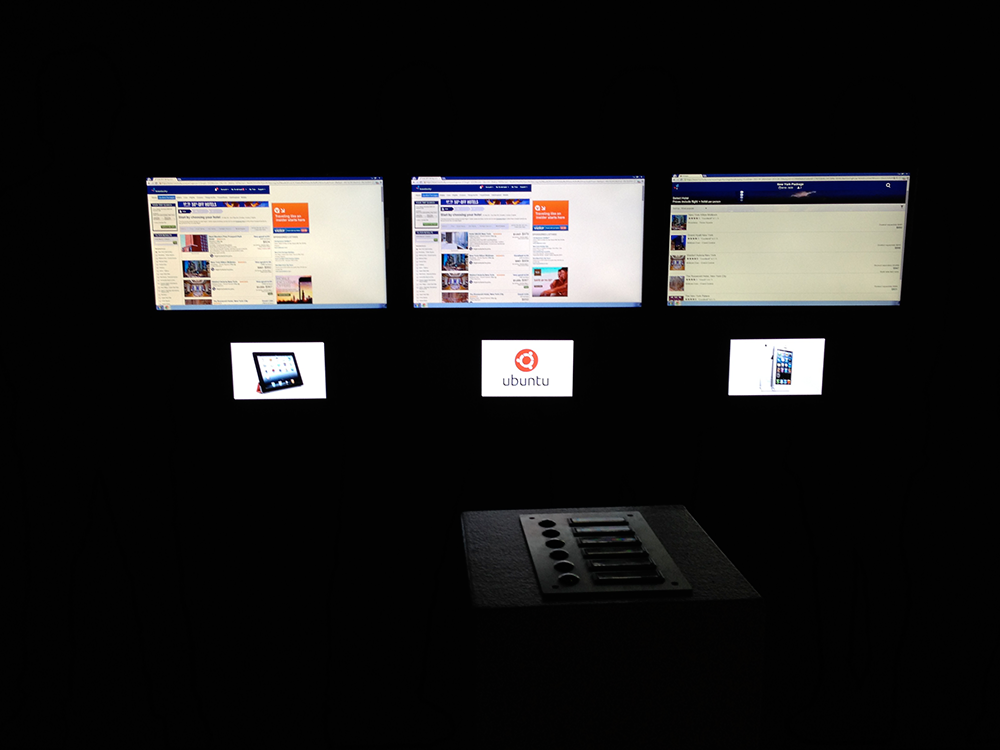
2016-05-19
Filtered Freedom – How does Google control our access to information?
In their work Filter Bubble (2015), Jörn Müller-Quade, Matthias Nagel and Ferdinand Sauer have taken an artistic approach to analysing the boundaries of technically produced search filters and the censorship for the individual user arising from this. The installation is part of the exhibition »GLOBAL CONTROL AND CENSORSHIP«, which can be viewed up until the 1st of May 2016 at ZKM.
»Tienanmen Square«, »British Petroleum«, »Hotel Prices«. The same search question, asked three times, but with three different search results. What is the reason for this? The most widely used search engine »Google« employs geographical and technical filters: depending on where the person making the search is located and what type of device they are using, the results for the keyword search are defined. In addition to that, the previous searches also influence what results are provided.
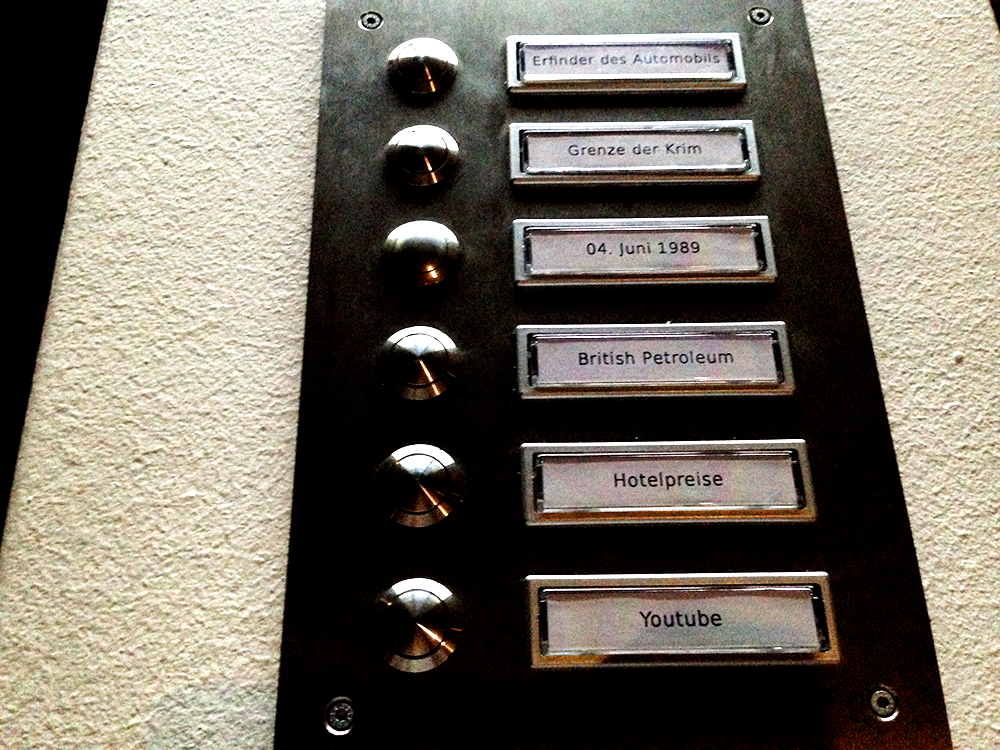
The interactive and web-based installation »Filter Bubble« from Jörn Müller-Quade, Matthias Nagel and Ferdinand Sauer illustrates these filter processes carried out by Google to the observer: practically completely individual search results to identical searches, whose differences are sometimes drastic, sometimes hidden and always astonishing are displayed and compared on three monitors.

The visualisation of Google's filter processes
It is in this way that Filter Bubble makes it possible for the observer to visually comprehend the cause (location when conducting the search or the electronic device being used) and effect (search result): the installation breaks down, for example, that the hotel prices in New York are lower on an iPhone than on a laptop. The events which took place in Tienanmen Square in Peking from the 3rd to the 4th of June 1989 can be directly found and viewed in Germany, but in China this same search first displays »famous birthdays« when the dated is searched for on Google. Only when the user looks closely and exactly will they be able to find links to websites about the so-called Tienanmen Square massacre, during which the protests of the democracy movement in China that had been going on for months within the country were bloodily suppressed by the Communist party regime. The search engine is also divided internationally when it comes to the question of "who invented the automobile": when "inventor of the automobile" is searched in Germany, a wide array of photographs of the engineer Carl Benz and the first motor car patented by Benz are provided, while the same question in the United States shows countless photographs of sports cars and just a few individual images of the German Automobile pioneer.
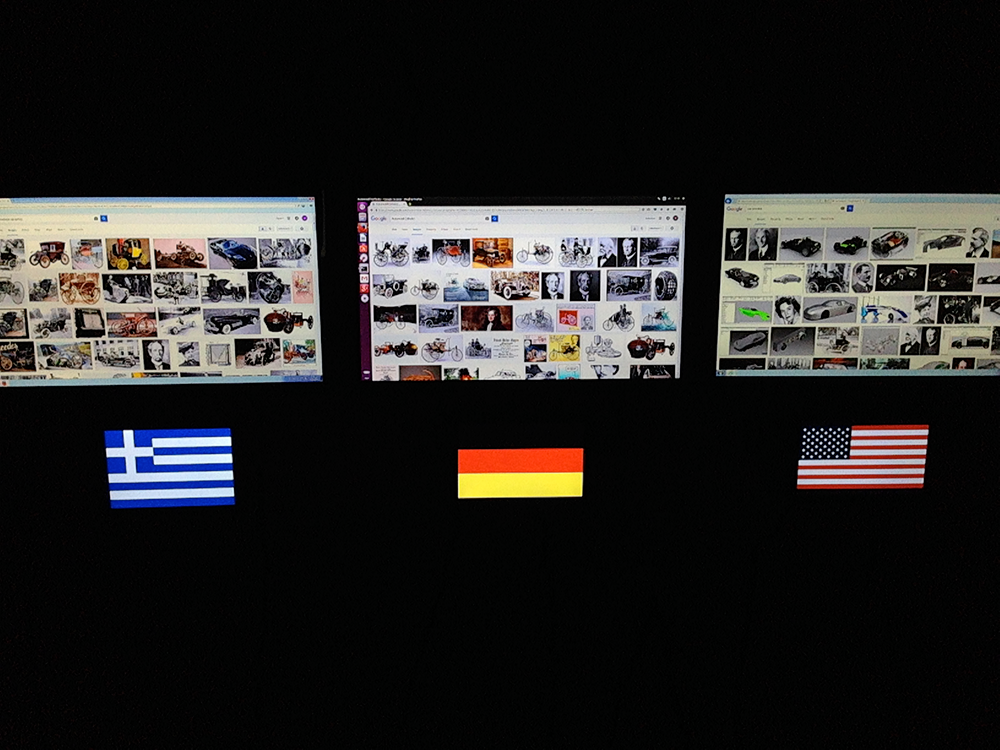
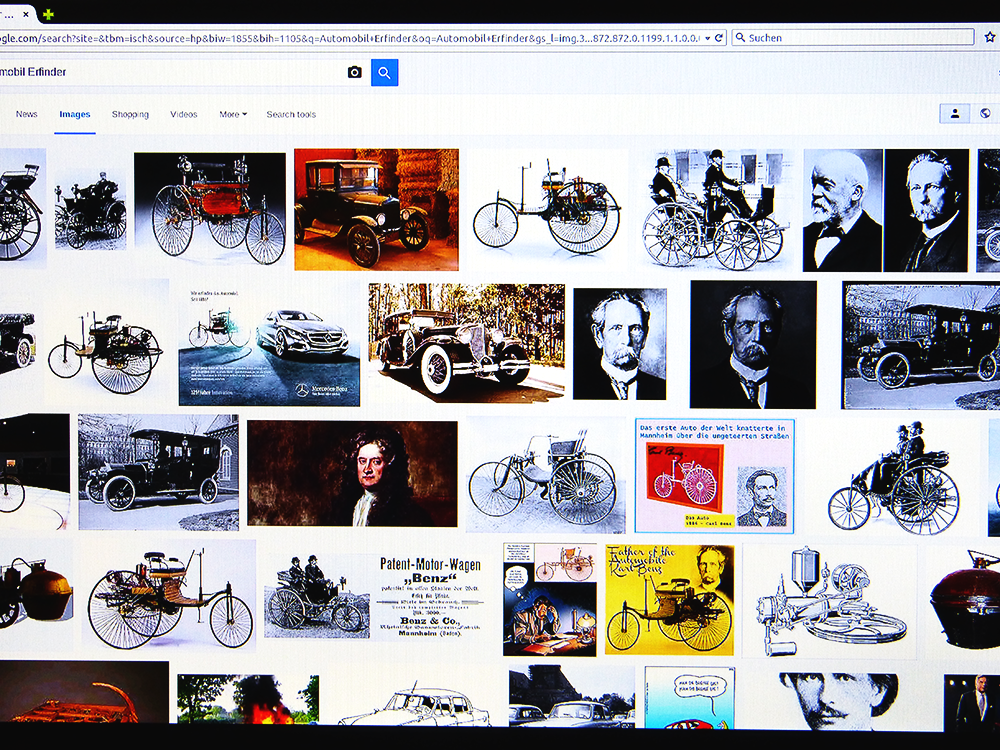
With this, the installation demonstrates: that the promise made by the Internet of free access to information has been broken. This limitation of access to knowledge means that the reproduction of one's own individual reality of life is at risk - and personal freedoms are restricted.
The crux of free access to digital information
As part of exhibition »GLOBAL CONTROL AND CENSORSHIP«, that will run until the 1st of May 2016 in ZKM, the Filter Bubble takes up the central question: how does data dictate our daily lives? How are they being controlled and abused? Following on from this is the work carried out by the scientists of the Kompetenzzentrum für angewandte Sicherheitstechnologie (Competence Centre for Applied Security Technology) (KASTEL) at the Karlsruhe Institute of Technology (KIT) which shows the thin line between filters and censorship and manipulation. The multiple search results make the observer aware of the technically and geographically defined filters, something which would otherwise not completely be the case with individual searches. And it is in this way that the installation reflects back to the observer just how limited their access to information is arising from their location and user profile and makes it clear to them how they treat - and others treat - personal data.
While the previous exhibition global aCtIVISm, which ran from the 14th of December 2013 to the 30th of March 2014 at ZKM, presented the communication possibilities offered by the world wide web, in »GLOBAL CONTROL AND CENSORSHIP« it is the flip side of this that plays the central role - the massive surveillance of the individual. The exhibition might frighten, but, more than anything else, it should be a wake-up call for us all to reshape the way we use this media and not to carelessly allow third parties such as governments and corporations, for example, to use as they wish, we should instead make it our own tool.
Concept and text: Marie Rosenkranz and Stefanie Strigl
